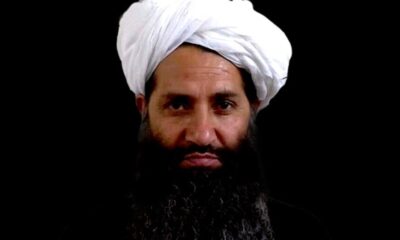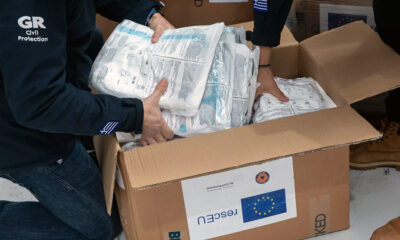Latest News
Petraeus downbeat about Afghanistan’s future post pullout
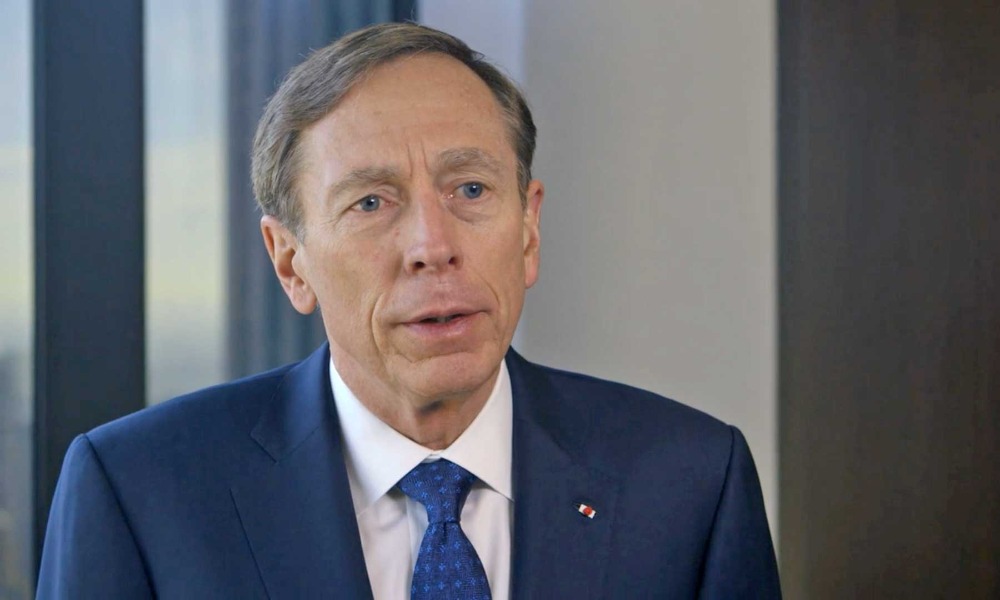
General David H. Petraeus, retired US Army general and former director of the CIA said on Saturday he fears the United States will come to regret their decision to withdraw all troops and warned of a possible civil war.
In an interview with VOA, Petraeus said despite measures being taken to mitigate risks by extremists from re-establishing safe havens in Afghanistan, he fears “that we will come to regret this because there could very well be the return of a sense of civil war, a reality of civil war.”
He said he sees “no willingness” on the Taliban’s part to commit to meaningful, verifiable and sustainable agreements “that would be necessary to enable some kind of sharing of power; some kind of again, diplomatic resolution of the issues and instead I see a Taliban who has gotten everything that they wanted from the negotiations.”
He stated the Taliban has gotten its leaders and fighters out of prison, under the Doha agreement signed between the United States and the Taliban in February last year.
“Now they are getting the U.S. to leave which then also means that our coalition partners leave,” and the foreign contractors who do the maintenance on military helicopters and fixed-wing aircraft for the Afghan defense force will also leave, he said.
He said based on this alone, one will see an erosion of security and the people will “fall back on their tribe, their ethnic group, their sectarian affiliation, their political party”.
“You may see again the kind of civil war that characterized the situation in Afghanistan after the collapse of the post-Soviet regime in Kabul which took place two or three years after the departure of Soviet forces and when the Soviet funding eventually ran out.”
But he said he had enormous admiration for the Afghan security forces who he said were fighting and dying for their country and for a democratically elected government.
“They’re fighting for a country that is very different from the one that the Taliban will establish if they are able to regain control of the country.”
He stated that should this happen, the Taliban would return Afghanistan to a “theoretic medieval government structure”.
But he said he hopes his fears are misplaced and that “this does not come to pass”.
Petraeus said he was concerned that foreign contractors might feel that once troops have withdrawn that security will not be adequate enough for them to remain, adding that he does “not see any willingness” on the Taliban’s part to “negotiate in good faith”.
He said he is aware that U.S. military commanders and American intelligence officers among other are working hard to identify ways to mitigate the risks of al-Qaeda or ISIS (Daesh) or other extremist group from establishing sanctuaries in Afghanistan,
He questioned however whether the U.S. would in fact get a base in a neighboring country stating that Pakistan has refused the request and so has Uzbekistan.
He pointed out that any flights out of bases in the Gulf states is a long commute – particularly for drones which he said had been the “unblinking eyes that were able to establish over so many areas in Afghanistan to identify when you see what could be extremist activity and the establishment of sanctuaries and
perhaps training bases and ranges and a variety of other facilities that might be the hub.”
He also said that the U.S. had destroyed on a number of occasions over the past 20 years attempts by al-Qaeda to re-establish bases in eastern Afghanistan and “more recently one down in southern Afghanistan, in Helmand province.”
This Petraeus said was “a bit of a surprise”.
However, he blamed the Taliban, the Haqqani network and the Islamic Movement of Uzbekistan for providing the grounds for terrorist organizations to establish themselves in Afghanistan.
Petraeus said it is these groups that are “eroding the security posture of Afghanistan, who are creating ungoverned spaces or spaces governed by the Taliban such as they are, and it is a fact that Islamist extremists will exploit ungoverned spaces anywhere in the Muslim world and that certainly includes Afghanistan.
He also said the U.S. has a “moral obligation” to Afghans who worked alongside American soldiers on the battlefield as interpreters, as well as those who played other roles, and said these people “and in many cases that of their family members” should be granted visas to live in the U.S.
He said while this is a long process, various options are being examined including some kind of real airlift of these individuals – even to a third Country where they could be processed.
“There is a recognition very much on Capitol Hill, certainly at the State Department in the Pentagon and increasingly in the White House that there is this moral obligation that we need to take care of those who did risk their lives as a result of what they did together with our forces.”
He said he thinks there will be some solution that will be forthcoming. “I just hope it is developed quickly enough so that we don’t end up leaving many of them behind and not meeting that very important obligation that we have incurred.”
He said he hopes however that his worst fears are not realized and that his assessment is inaccurate and that the Afghan security forces continue to receive solid assistance from the U.S. and NATO allies, from diplomats and aid workers and other international organizations.
He also said he hopes the Afghan security forces show they can stand up to the Taliban on their own and that contractors stay on in Afghanistan to maintain the equipment and weapons systems.
Petraeus also stated he hopes the Taliban will eventually engage in “true negotiations” and be willing to compromise on some issues.
He said however he does not see “enormous leverage” for U.S. special envoy Zalmay Khalilzad’s continued diplomatic efforts “given that we have told the Taliban that we are leaving.”
Latest News
Afghanistan-Iran-Europe railway corridor activated

The Iranian Embassy in Kabul announced on Thursday that the Afghanistan-Iran-Europe railway corridor has become operational.
In a statement, the embassy said the first export shipment from Afghanistan has started its journey through the Afghanistan-Iran railway corridor to Turkey and Europe.
The corridor was activated with the presence of the Iranian Consul General in Herat and the governor of the province, the statement read.
The statement added that the activation of this corridor, with Iran’s cooperation, will contribute to the improvement of Afghanistan’s economy.
Latest News
Amnesty international urges Pakistan to halt Afghan deportations
Amnesty International said that all Afghan nationals are required to leave the cities of Islamabad and Rawalpindi by 31 March
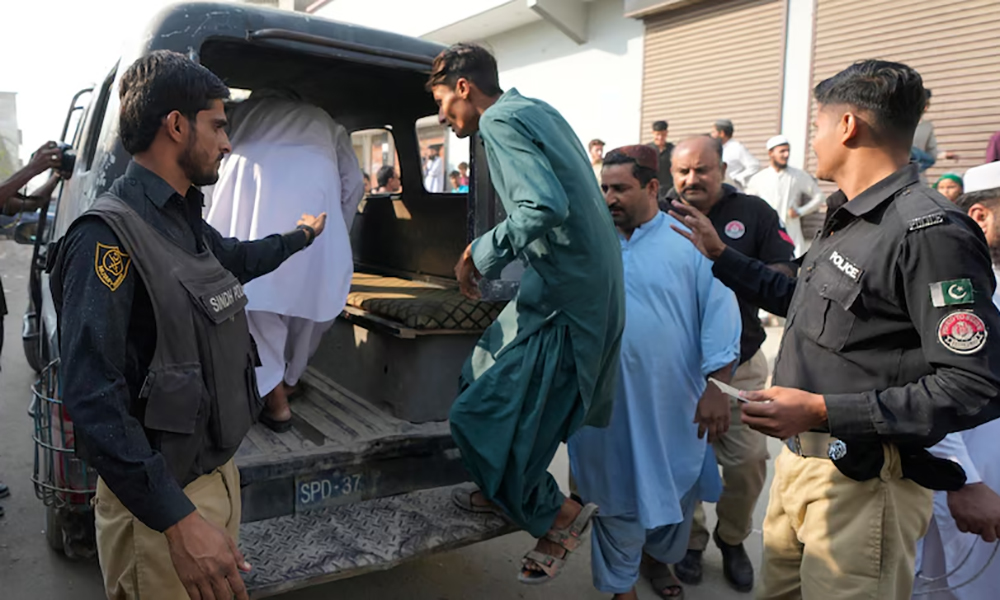
Amnesty International on Wednesday called on Pakistan to immediately withdraw its “Illegal Foreigners Repatriation Plan”, which primarily targets Afghan refugees, ahead of the authorities’ 31 March deadline.
Pakistani government has asked all “illegal foreigners” and Afghan Citizen Card holders to leave the country before March 31, warning they would otherwise be deported from April 1.
Amnesty International said that all Afghan nationals are required to leave the cities of Islamabad and Rawalpindi by 31 March
It said that “arbitrarily and forcibly expelling Afghan nationals, including refugees and asylum seekers, will only add to their plight”.
“The Pakistani government’s unyielding and cruel deadline, which is less than a week away, to remove Afghan refugees and asylum seekers from two major cities, resulting in the deportation of many at risk, shows little respect for international human rights law, particularly the principle of non-refoulement,” said Isabelle Lassée, deputy regional director for South Asia at Amnesty International.
The exact details of the Pakistan government’s ‘Illegal Foreigners Repatriation Plan’ used for deportations has never been made public, but it comes amid a campaign to wrongfully demonize Afghan nationals as so-called criminals and terrorists, Amnesty said.
Isabelle Lassée said that the Pakistani government is only making “a scapegoat of a community that has long been disenfranchised and fleeing persecution.”
Human rights lawyer Moniza Kakar pointed out that forcing Afghan refugees to relocate even within Pakistan is devastating for families. “Many PoR card holders are people who’ve been here for decades, asking them to relocate means you’re asking them to leave homes, businesses, communities and lives they’ve built for years,” she said.
Lawyer Umer Gillani, who has challenged the deportation orders in Pakistan’s Supreme Court and Islamabad High Court, argued that the March 31 deadline was not legally enforceable. “The official notification has not been issued under any particular law; it is just an executive instruction,” he stated.
Meanwhile, the International Organization for Migration (IOM) reported a sharp decline in Afghan returns and deportations during the first half of March. Between March 1 and 15, returns dropped by 67 per cent, while deportations fell by 50 per cent compared to the previous reporting period (February 16-28).
Latest News
IEA leader congratulates Afghans on Eid ul-Fitr
The IEA leader also strongly condemned the Israeli military strikes against the “oppressed and defenseless” Palestinians as a “great injustice and barbarity.”
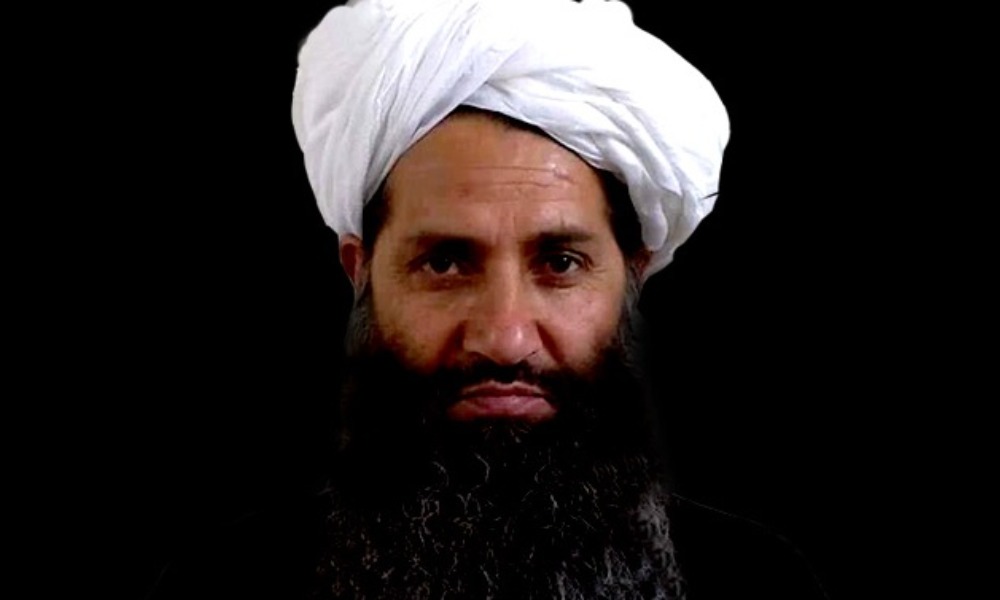
Supreme leader of the Islamic Emirate of Afghanistan (IEA), Mawlawi Hibatullah Akhundzada, congratulated the Afghan people on the occasion of Eid ul-Fitr, calling on them to be strong in their beliefs and not to follow the path of Satan.
In his Eid message, released on Thursday, Mawlawi Hibatullah stated, “Dear Muslim brothers! let us renew our commitment to Allah, the Almighty, and strengthen our resolve to avoid His disobedience and not follow the path of Satan.”
He asked Afghans to thankful to Almighty Allah for security across the country.
“There was a time when on this very day, the funerals of our Afghan brothers were carried out, bombs fell upon us, our homes were searched, and we were dragged into prisons. But now, thanks to Allah, this day has transformed into one of peace and security,” he said.
IEA’s supreme leader reiterated the Islamic Emirate’s resolve to implement Shariah law, instructing courts to ensure judicial rulings adhere strictly to Islamic laws. The message again reiterated that implementing Shariah was a fundamental objective of the Islamic Emirate’s jihad and sacrifices.
On education, Mawlawi Hibatullah said that the educational institutions are tasked with giving serious attention to the correction of beliefs and actions across all educational sectors, aligning their curricula with Sharia, and providing proper training and education to the youth.
Additionally, he cautioned against “harmful propaganda spread by hostile intelligence agencies, who seek to sow despair or create unnecessary concerns about poverty and economic challenges.”
“The Islamic Emirate, with the help of Allah Almighty, is doing all it can to improve your lives.”
Condemnation of Israeli Attacks on Palestine
The IEA leader also strongly condemned the Israeli military strikes against the “oppressed and defenseless” Palestinians as a “great injustice and barbarity.”
“We support the legitimate demands of the Palestinian people and urge the rest of the Islamic world to, as much as possible, support the Palestinians, so they can regain their usurped rights, be freed from the oppression and aggression of the Zionist regime, and put an end to the ongoing atrocities and injustice there,” he said.
-

 International Sports4 days ago
International Sports4 days agoRCB bring fireworks to opening night of IPL 2025
-
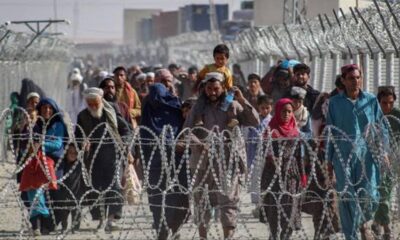
 Latest News4 days ago
Latest News4 days agoTorkham border reopens for pedestrians
-
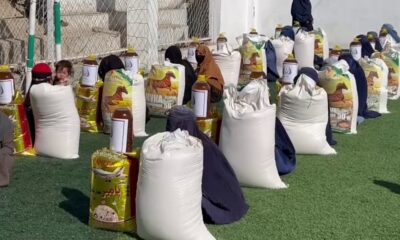
 Latest News4 days ago
Latest News4 days agoBayat Foundation distributes food aid to dozens of needy families in Balkh
-

 International Sports3 days ago
International Sports3 days agoIPL 2025: Sunrisers on a batting rampage; triumph over Rajasthan Royals
-
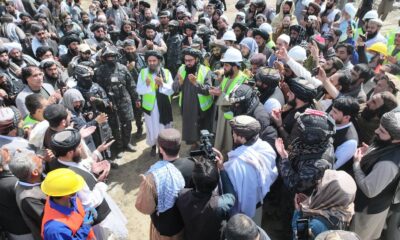
 Business4 days ago
Business4 days agoDeputy PM inaugurates launch of Arghandi Transport Terminal Project in Kabul Province
-

 Latest News3 days ago
Latest News3 days agoEU says girls’ education crucial for Afghanistan’s long-term prosperity
-

 Sport3 days ago
Sport3 days agoACB names Afghanistan A squad for tri-nation series
-
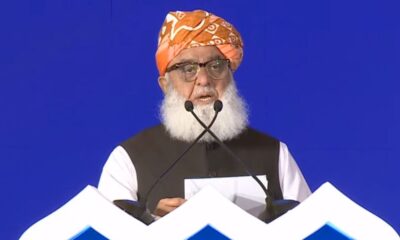
 Latest News4 days ago
Latest News4 days agoPakistan’s mistakes played significant role in rise of terrorism: Maulana Fazl-ur-Rehman








